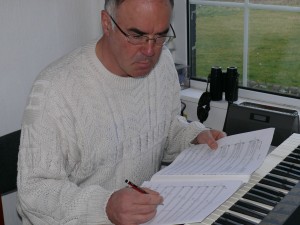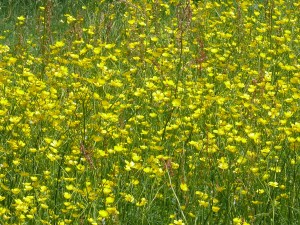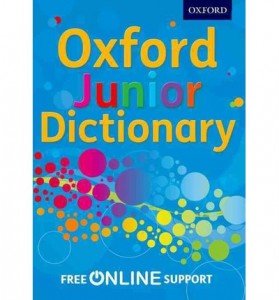
Laurence Rose has worked for the RSPB for over 30 years. He also edits the website
NATURAL LIGHT that explores the links between nature and the arts.
A is for acorn, B is for buttercup. No, make that analogue and broadband
C was for catkin, but now is for creep; D was for dandelion, but now is for database. In 2008 parents started noticing that the new edition of the
Oxford Junior Dictionary had lost a host of familiar words, and had gained some new ones. This was nothing new: dictionaries – the
Oxford English Dictionary apart – regularly remove obsolete words to make way for new ones. Nor was the removal of everyday words unexpected, since children’s dictionaries are necessarily selective even when it comes to words in current use. But, as Sara Maitland points out in her book
Gossip from the Forest: The Tangled Roots of Our Forests and Fairytales it was the language of nature that was hardest-hit in the OJD’s cull. Childhood in the Oxford University Press’s world has shifted from one of nature and Christmas, to one of celebrity, cyberspace and fear of strangers.
Why does this matter? Well, compared with a generation ago, when 40% of children regularly played in natural areas, now
only 10% do so, while another 40% never play anywhere outdoors.
Ever. Obesity, anti-social behaviour, friendlessness and fear are the consequences. As they grow up (with a lower life expectancy than their parents – the first time in recorded history that has happened), we can expect an incomprehension of the natural world and an inability to manage its delicate balance, or to fix it when the balance goes wrong.
The toll of lost words will come as a surprise to anyone who still regards connecting with nature a vital part of growing up. Many are long-standing and much-loved symbols of our ancient cultural ties with the land, its wildlife and produce.

Generations of children have grown up holding buttercups under their chins to see if they love butter. But in a
Plantlife survey the bluebell was overwhelmingly voted the nation’s favourite flower. It revealed a strong cultural connection and a national love of a uniquely British scene: our bluebell carpets make up around 50% of the world’s population of the species. Buttercups and bluebells are two of more than a dozen wild flowers that have been removed.Our centuries-old attachment to trees is reflected in the games, poems, songs and books of childhood. But if, reading
The Wind in the Willows, singing
The Holly and the Ivy, playing conkers or collecting acorns are less popular than before, is this a reason to remove these words from the dictionary, or a reason to keep them in?
Tarka’s creator may these days be persona non grata but is that a reason to banish the otter from our children’s vocabulary?
Every budding birdwatcher’s eye is drawn to the page with the kingfisher on it. Possibly our brightest bird, yet difficult to see: a real test for a young naturalist’s fieldcraft. Although the starling is in serious decline, there are places where kids can still witness its jaw-dropping aerial displays. They just can’t look up the bird as, along with the kingfisher, as well as the lark, cygnet, drake, heron, raven, thrush and wren, the starling is already extinct in the pages of the OJD.

In a
statement issued last week, Oxford University Press state ‘
all of our dictionaries …. are based on top quality lexicographical research – monitoring and researching how language is evolving, and applying the highest of editorial standards. …… Importantly, all of our dictionaries are designed to reflect language as it is used, rather than seeking to proscribe certain words or word usages’.
If we accept that the OJD isn’t the OED, and that it can’t keep adding new words without removing some, all the more important that decisions are not based solely on the dry rigour of the lexicographer. The Oxford brand has earned its authority and role as a cultural leader. This brings responsibility for helping to shape children’s understanding of the world, not just to mirror its trends.
So I have asked when we can expect the next edition to be published, something the OUP would not reveal for commercial reasons. I asked whether any of the lost words will be reinstated, and have not yet had an answer. I feel that OUP did not consider the cultural signal being sent out in removing what for me seems a disproportionate number of nature words. The specific choices seem to include some of the words most symbolic of the relationship between childhood and nature and, therefore, culture and heritage. Any sign that that ageless connection is being lost is not just an interesting lexicographical phenomenon, it is a concern that any organisation that claims cultural leadership must help to rectify.
[registration_form]
 Laurence Rose has worked for the RSPB for over 30 years. He also edits the website NATURAL LIGHT that explores the links between nature and the arts.
Laurence Rose has worked for the RSPB for over 30 years. He also edits the website NATURAL LIGHT that explores the links between nature and the arts.
 In a statement issued last week, Oxford University Press state ‘all of our dictionaries …. are based on top quality lexicographical research – monitoring and researching how language is evolving, and applying the highest of editorial standards. …… Importantly, all of our dictionaries are designed to reflect language as it is used, rather than seeking to proscribe certain words or word usages’.
In a statement issued last week, Oxford University Press state ‘all of our dictionaries …. are based on top quality lexicographical research – monitoring and researching how language is evolving, and applying the highest of editorial standards. …… Importantly, all of our dictionaries are designed to reflect language as it is used, rather than seeking to proscribe certain words or word usages’.
Time perhaps then for an alternative version? OK it wouldn’t have the Oxford marketing machine behind it but with sufficient push from the recently revived “Conservation” Party behind it, it could challenge the OJDs cull of natural examples?
The full statement from OUP indicates that the criteria for inclusion include curriculum requirements and an emphasis on IT (not quite the neutral approach suggested by the comment about reflecting the language as it is used rather than proscribing words or usages). This suggests to me that it is the people in charge of the national curriculum who really need to be targeted in order to persuade them of the importance of including nature in school curricula at all stages.
Of course it is important that IT should form part of the curriculum but the truth is that for most people, their use of IT in later life is restricted to a few widespread programmes – word-processing, internet, etc – that are increasingly designed to be straightforward and easy to use (many of us use them quite happily having gone through school long before IT became a subject). It is debatable therefore as to how much the subject should be allowed to dominate the rest of the curriculum. From what I have seen of school IT teaching it doesn’t really cover much more than these types of programmes and is certainly not geared towards producing the creators of the next Google or Facebook.
Many children are heavily exposed to computers and IT in multiple forms from a very early age and develop a facility with computers in a way that sometimes leaves adults in their wake. In contrast, it seems that ever fewer children have any kind of direct contact with nature. It is surely important for schools to play a part in addressing this. If we do not raise children to be ‘nature-literate’ then there is not much hope that we will be able to stall the decline in the abundance and diversity of wildlife that is going on all around us.
You’re spot on Jonathan, Nature & the Environment should be included in the national curriculum. With all of the money spent on trying to educate adults about recycling & healthy eating surely it make sense to start that education much earlier. If schools were teaching about looking after wildlife & the natural world, and giving homework that included field work, it would get people out of the house and that would improve general health too.
Having a separate dictionary for children is pathetic anyway. Not to mention patronising. It seems like little more than an excuse to sell more rubbish to the gullible. Wasn’t it the Victorians who first came up with such paltry stuff for young people originally? Only in their case it was puritanical preoccupation with sex and other bodily functions that caused them to bowdlerise their books.
Looking on the Amazon webpage there are some adults who can see through it though fortunately, with comments such as; “don’t bother, just buy a real dictionary. so many words missing” and “not all the words are in there”, so some people are noticing that it’s distictly inadequate.
Using the look inside function, straight away you can see the bias. The word “access” for example, the ONLY definition given for this word is: “(in ICT) When you access information on a computer, you find it and use it.”
Under “words to do with food” it shows 8 words, of which 5 are “biscuit”, “chocolate”, “hamburger”, “ketchup” and “spaghetti” – with a diet like that no wonder kids are obese and heading for a lower life expectancy than their parents!
Sorry OUP, your statement looks like a mealy-mouthed politician’s set of excuses for pandering to the lowest common denominator in society and moulding a generation of people who can barely comprehend or relate to anything outside their insulated and artificial world of industrial technology. Tragic.
Hello
I have to admit that I’ve not yet found the time to read this blog post, but just seeing this has led me to issue a public ‘THANK YOU’ to Laurence Rose for inspiring me a very long time ago. Back in 1987 or 1988, Laurence have a talk in St Neots (as a ten or eleven year-old I was in the audience) about the RSPB and then led us on a walk around my then-local patch, Paxton Pits.
It was an exciting walk – we say my first-ever Garganey. I can still remember it sat on the water and then flying past.
What made Laurence an even more an inspiring guy was that he took my address and sent me some wildflower seeds in the post from RSPB HQ which my Mum & Dad allowed me to plant in the garden. I won’t forget Laurence’s little hand-written note in an envelope containing all these seeds. At the time I couldn’t believe that someone at RSPB HQ was sending me a hand-written letter.
I did meet Laurence again briefly once at RSPB members weekend when I was volunteering and I know understand he’s overseeing Titchwell.
Laurence – thank you for inspiring a young naturalist all those years ago. I’ve tried to do my bit in return by talking with some of the outstanding youngsters present at the BTO 2014 Conference. Hats off to Toby Carter in particular for his ‘front’ in approaching me and for his persistence in looking for Yellow Wagtail nests!
Thought I’d share that.
Thanks,
Andrew
Thank you, everyone for those valuable thoughts. And Andrew – I remember your visit and even remember the seeds! I’m touched by your comments.
I think it’s important that OUP reinstate at least some of the lost words, rather than lose market share to alternative dictionaries. This is because quietly, and probably innocently, removing them is one thing, but deliberately and loudly putting them back would send a tremendously supportive signal to parents and teachers. More importantly, decision makers in charge of the National Curriculum might get the message.
Nature and culture have been inseparable throughout human history. There’s a real possibility that will not be true for much longer, unless cultural leaders like OUP take more care over their share of responsibility.
Keep in touch with this campaign via http://www.naturemusicpoetry.com/campaigns.html and thanks, Mark for giving me the platform.
Laurence